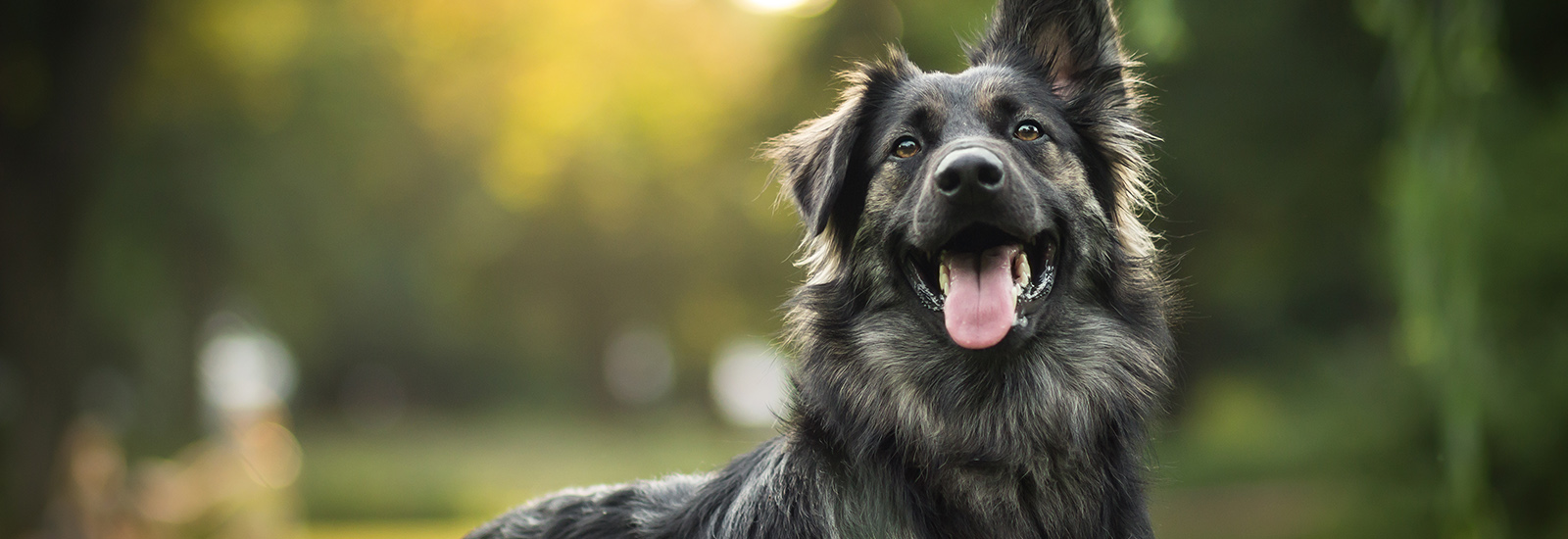A dog’s nutritional requirements change over the course of its life. In addition to the different nutrient requirements, other challenges may occur when feeding. Here are some tips on what to look out for when feeding senior dogs.
Nutrition for older dogs
When is a dog considered “old”?
Dogs do not grow old overnight. Aging is a slow process, the beginning of which depends on the breed and the individual constitution. Very large dogs are already regarded as seniors at the age of six, while medium-sized and small dogs count as seniors when they are seven. This can be outwardly evident in the form of a decrease in the tendency to play and the urge to move around, as well as initial difficulties in the movement process. Inflamed joints may cause pain, reducing the desire to exercise. Often the colour of the dog’s coat also changes.

Nutrition tips for older dogs
Due to their advanced age, changes in eating behaviour may be noticed in older dogs. With these tips, we would like to help you provide support for your older dog when eating:
- Avoid large portions
Older dogs have slower digestion. It is therefore advisable to spread the daily food ration over three to four smaller meals. - Cut up the food
If the dog has dental problems, you should cut wet food into smaller bites. This makes it easier for the dog to eat. - Problems with dry dog food
A dog’s sense of smell decreases with age. This can lead to your pet eating less dry dog food when it is old. Mixing the food with warm water may be enough. Otherwise switching to wet dog food is recommended. - Older dogs do not drink enough
Older dogs often drink too little, which can have a negative impact on their health. The risk is greatest with dry dog food, which is why wet food is preferable. - Fewer bones
Even if your dog is a real bone fan – with age, the feeding of bones should be reduced because the intestines work more slowly, increasing the risk of constipation. - Warming up the food
When dogs suffer from a loss of appetite, this may be due to reduced sensory perception. Observe how your dog reacts to warmed wet dog food. It has a more intense smell, which often encourages eating.
Feeding older dogs
If your older dog has feeding problems, make sure that you consult a vet in good time. They can establish whether this is due to an illness and a change of food is therefore recommended. The vet may advise you on special dietary dog food or recommend switching from adult dog food to senior dog food. This is tailored to the different nutritional needs of an older dog. Firstly, this addresses the often reduced energy requirements due to decreased activity. And secondly, the vitamin and mineral composition is adapted to provide the senior dog with all the essential nutrients it needs.

